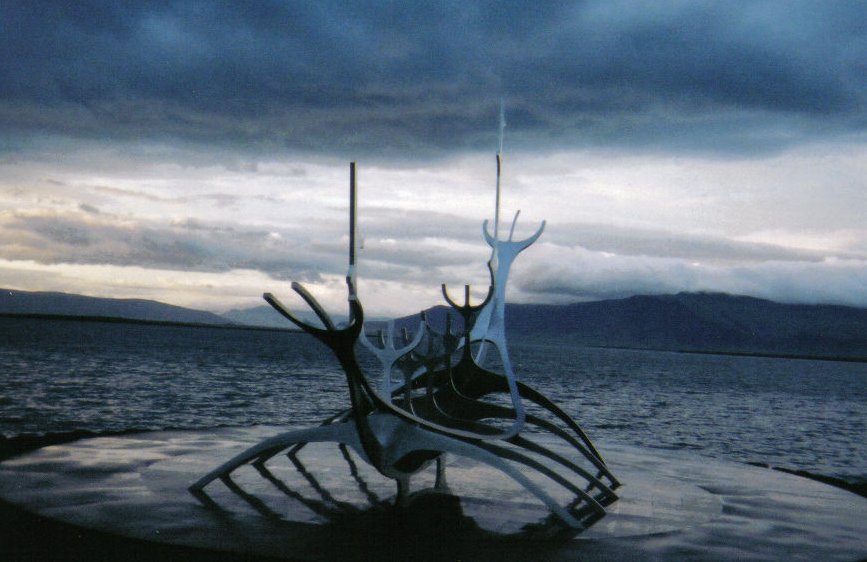 ++101 Reykjavik++ ++101 Reykjavik++ |
 ++The Blue Sky++ ++The Blue Sky++ |
 ++Crystal Rise++ ++Crystal Rise++ |
 ++Viking Horns++ ++Viking Horns++ |
 ++South Iceland++ ++South Iceland++ |
 |  |  |  |  |
|
Now, chess might seem like it is only a game in today's modern, secular world, but according to a href="http://enchantedmind.com/html/creativity/techniques/creative_chess.html">Herman Hesse (quoted on the Enchanted Mind website): "Here and there in the ancient literature we encounter legends of wise and mysterious games that were conceived and played by scholars, monks, or the courtiers of cultured princes. These might take the form of chess games in which the pieces and squares had secret meanings in addition to their usual functions." The Enchanted Mind website goes on to write that: "A complete game of chess is an evolution through a series of geometric transformations of position and power.... Each combination of pieces in various positions on the board exhibits the physical configuration of a particular energy pattern. One way to play the game is to work with the geometric tensions and make moves that bring the situation into harmony."
It is my theory that the characters of Gravity's Rainbow directly correlate with the pieces on a chess board, with two sides battling for supremacy -- black versus white. The Zone itself is the chess board in which this battle tales place, and the movement of characters across it corresponds to the movement of chess pieces in a game. The most obvious clue is the character Der Springer ("The Chess Knight" in German), who is said to be "the Knight who leaps perpetually across the chessboard of the Zone", "the white knight of the black market". Another clue to the importance of chess in Gravity's Rainbow can be seen in the references to Argentine poet Jorge Luis Borges, the inspiration for the Argentine anarchic plot to create a new parallel Universe in the womb of the Zone. As quoted on the Hyperarts.com site, Borges wrote a poem called The Game of Chess which Pynchon must certainly have read. It is worth HTMLing the poem in full here because it says so much about what I want to say about the magical potential of Gravity's Rainbow -- the potential to design your own parallel world out of the womb of the so-called "real world". It is worth noting that Borges argued that there is no material substance (the aforementioned so-called "real world") -- the sensible world consists only of ideas, which exists for so long as they are perceived. Ideas, which in my opinion, can be manipulated by the subtle and sublime player, once they have yanked control of The Game.
The Game of Chess
Within it the shapes give off a magic
When the players have departed, and
That war first flamed out in the east
II
They do not know it is the artful hand
But the player likewise is a prisoner
God moves the player and he, the piece.
There are plenty of other clues as to the chess analogies in Gravity's Rainbow. For example, In Gravity's Rainbow chapters are divided by a row of seven small squares,
which some see as sprocket holes[25]: this would be then a direct allusion
(or a link) to film, making the text between the holes a series of images
that roll - or better yet - flash in front of the readers' eyes in a motion-
picture(sque) manner. However, the seven little squares could also be references to the squares on a chess board.
Another chess reference of sorts can be seen in Slothrop's wierd Raketen-Stadt episode, in which whole buildings can be moved in two and three dimensions, in bizarre, chess-like motions. The episode concludes with the single word "chess".
Since I don't know anything about chess, I have to turn to the webexperts for help. According to
How The Chess Knight Moves: "A knight in the center of the chess board has eight possible moves, as shown by the green circles in the diagram. If a target square is occupied by the opponent's piece, the Knight can capture it; if occupied by a piece of the Knight's color, the Knight is blocked and can't move to that square. "Note that the Knight changes the color of its square each time it moves. ."  His white whale is the rocket 00000. He has an English counterpart in the Pavlovian experimental psychologist Edward Pointsman (the 'man who throws the switches') who believes in the 'stone determinancy of everything, every soul.'" His white whale is the rocket 00000. He has an English counterpart in the Pavlovian experimental psychologist Edward Pointsman (the 'man who throws the switches') who believes in the 'stone determinancy of everything, every soul.'"THOMAS PYNCHON'S epic tome GRAVITY'S RAINBOW can be read in so many ways, on so many different levels, and one of the joys of the book is that one can never really get to the bottom of it. That's why x y said if he were to be banished to the Moon and could take only five books, GRAVITY'S RAINBOW would be one of them. What's it all about? -- there are many interpretations and pot theories, but in this essay, I want to discuss the use of wordplay in the novel, and the contribution such wordplay makes towards understanding the greater meanings of the work. Whether intentional or not, the use of wordplay (including the names of characters) sheds an indispensible light on the inner workings of the novel. Take the cold-blooded scientest Dr. Edward W. A. Pointsman, the Pavlonian who "can can only possess the zero and the one". This is a man who can only see two points (zero/one, on/off) -- this is the Points-man. According to Pynchon's Prophecies of Cyberspace, by Brian Stonehill, Pointsman is "explicity named after the binary switcher at a railroad junction". Given that the railroad is a central theme in GRAVITY'S RAINBOW, this could help provide some clues, to those that want answers. What is GRAVITY'S RAINBOW all about? The answer is there looking you in the face, if only you had the open-mindedness and clarity to see it... Let me put it this way: it has been pointed out, by Frank Lynch, that "Pirate Prentice" is an anagram of "Preterite Panic." (Gravity's Rainbow Online. Pirate Prentice is of course the Special Operations Executive who can live the fantasies of others. There are many other anagrams in this book, whether intentional or no, which I want to explore in the paragraphs and the pages that follow.
There is this quote from Pynchon's Prophecies of Cyberspace, which describes the initial Prentice scenes: "In this same first episode we get a description of Pirate Prentice's "condition," which is that he receives, through unexplained but reliable means, other people's fantasies. The most comic and memorable of these is Lord Blatherard Osmo's adenoid fantasy, concerning a huge adenoid gland slurping up its victims around London and requiring hods of cocaine. Here again, in Pirate's Condition, we have a form of disembodied, apparently instantaneous communication of information -- in this case, information in the form of imagery, which makes Pirate something like a GIF file receiver. Pirate receives J-PEGs and GIFs as if through some disembodied spiritual cybernetic node. Pirate is, in a sense, a node..."
hitchhiking in iceland | akiko | iceland photos | ice music
|
| |||||||||||||||||||||||||